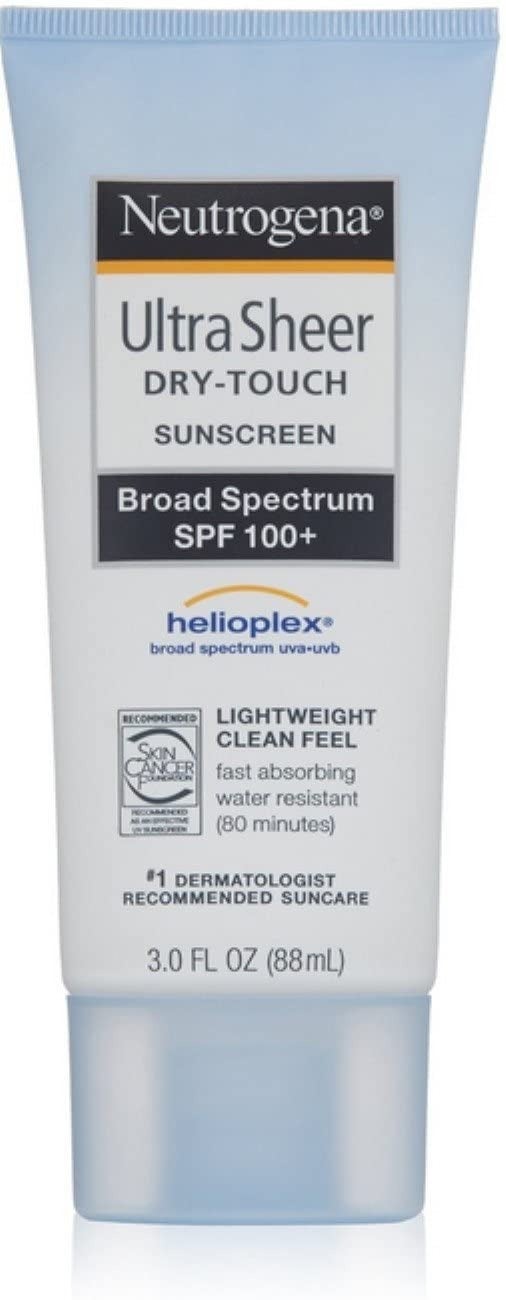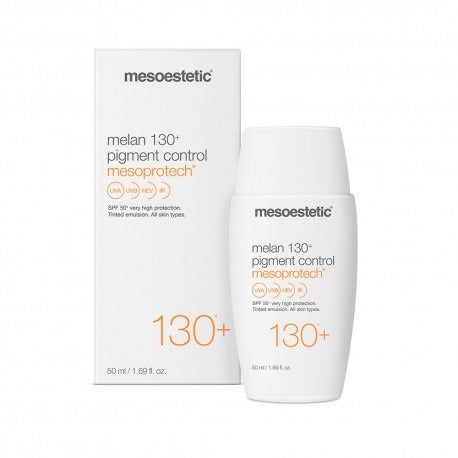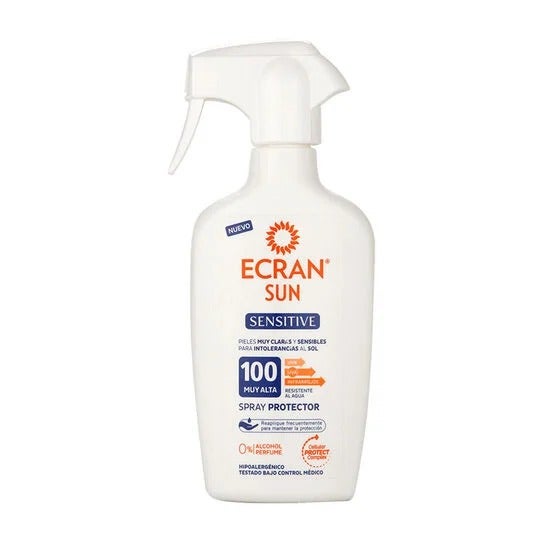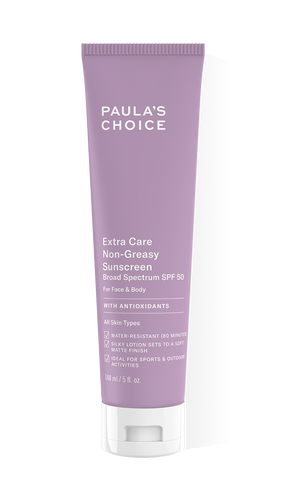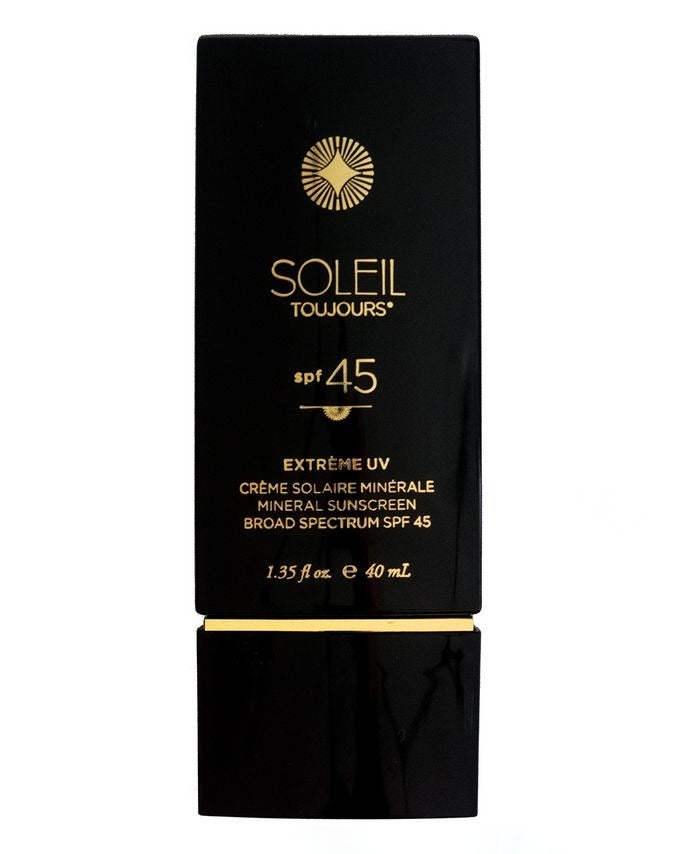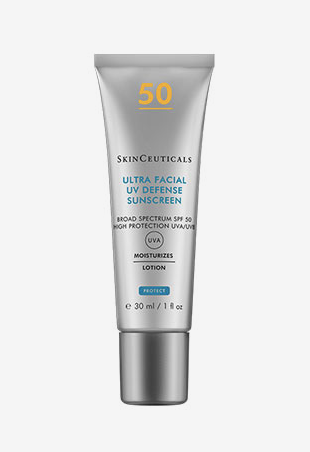SPF 100 Is Here But Is It Worth It? This Is What A Dermatologist Thinks
Photographed by Poppy Thorpe
Cleanse, tone and moisturise. When it comes to skincare, the old adage is something many of us follow religiously to keep our skin in check. But whether or not you're a skincare obsessive, chances are you've added another product to the lineup and it's a must-have for everyone. Enter: sunscreen.
Thanks to extensive research, we now know exactly how the sun's UV rays can play havoc on skin. From the more serious effects, such as skin cancer and sunburn, to aesthetic gripes like sun spots, pigmentation and fine lines, UV has a lot to answer for. While wearing sunscreen all year round is a no-brainer, a daily slathering of sunscreen is especially important in the summer months when rays are much stronger and we tend to spend more time outside. Most dermatologists recommend sunscreen with a minimum of SPF 30, perhaps even SPF 50 if you have lighter skin, are easily susceptible to sunburn or use skincare ingredients like exfoliating acids and retinol, which can make skin sensitive to sunlight. But lately, brands have taken sunscreen to a new level, formulating facial and body products with an enormous SPF 100.
AdvertisementADVERTISEMENT
According to a study published in the Journal of the American Academy of Dermatology, SPF 100+ sunscreen was found to be "significantly more effective in protecting against sunburn than SPF 50+ sunscreen in actual use conditions," when tested by 199 participants. Those studied are reported to have "worn both sunscreens simultaneously during activities" for a number of hours. The study concluded that after exposure, 40.7% of the participants (81 of 199) showed an increased redness of the skin on the SPF 50+ protected side. Increased redness was seen in just 13.6% (27 of 199) of individuals when looking at the side that was covered with SPF 100+. In other words, skin was less sunburned when participants wore SPF100+.
So should you ditch your trusty SPF 30 for the newer, higher version? And will it really make that much of a difference to your skin over time? Here's what an expert thinks.
What are the benefits of using SPF 100?
"This study is an interesting one and has compared levels of sunburn following a single sun exposure with SPF 50 versus SPF 100 in 199 healthy people," says consultant dermatologist Dr Zainab Laftah at Omniya Clinic in Knightsbridge. "While there was a higher recorded rate of sunburn with SPF 50 in comparison to SPF 100, it is important to acknowledge a significant number showed no difference between the two sunscreens."
AdvertisementADVERTISEMENT
So are there actually any skincare benefits to SPF 100? "SPF 100 creates a physical barrier that blocks 99% of UVB rays (responsible for sunburn and skin cancer) from penetrating the skin," says Dr Laftah. "Its biggest limitation is the opaque white tint. However, if you have a fair skin type that always burns and never tans and do not mind the white cast appearance, then it may be suitable for you. In reality the majority of us are unlikely to be walking around with a white coating on our skin and so SPF 100 is less practical than the traditional mineral sunscreens."
What's the difference between SPF 100 and SPF 50?
"SPF (sun protection factor) is a measure of protection against ultraviolet B rays burning your skin," says Dr Laftah. But SPF is not linear. "This means SPF 100 does not equate to twice as much protection as SPF 50. SPF 30 blocks 97% of UVB rays, SPF 50 98% and SPF 100 99%. Moreover, wearing SPF 100 does not make you invisible from the harmful rays of the sun." Other sun protection practices are encouraged if you're spending time outside, such as staying in the shade, wearing a hat and sunglasses and covering up when possible.
"The key is to use a sunscreen that you like and reapply often," adds Dr Laftah. "Consider opting for a broad spectrum sunscreen (which protects against UVB, responsible for sunburn and skin cancer) and UVA wavelengths, which penetrate deeper into the skin resulting in fine lines." Your sunscreen should be labelled 'broad spectrum' and feature both UVA and UVB on the label.
AdvertisementADVERTISEMENT
How should you apply SPF 100?
The rule of thumb is that sunscreen should be applied around 20-30 minutes before sun exposure. If you want to give SPF 100 a try, Dr Laftah recommends reapplying (yes, even to facial skin) every two hours to ensure adequate protection. This goes for all levels of SPF, as we absorb topical skincare, sweat, experience humidity and may come into contact with water. "The current SPF 100 sunscreens have a thick consistency and leave a white cast therefore are less practical," adds Dr Laftah. "A more user-friendly formula may appear on the market in the future, though."
What are the best SPF 100 skincare products?
Currently, only a handful of brands in the UK offer skincare products with high factor SPF 100+. If you want to give it a go, try Neutrogena Ultra Sheer SPF 100 Dry-Touch Lotion, £14.90, which is a chemical SPF. The texture is just like a nourishing moisturiser; it takes a couple of seconds to absorb and needs to be rubbed in properly to avoid lots of white residue, but the finish is matte to the touch.
Also try Ecran Sensitive Trigger SPF100, £18.96, formulated for sensitive and reactive skin or Mesoestetic Mesoprotech Melan SPF 130+ Pigment Control, £60, which contains both chemical and mineral sun filters and actually boasts a very high SPF 130 for those prone to pigmentation.
If you're looking for a mineral sunscreen which won't make skin appear chalky, try Paula's Choice Sunscreen SPF 50, £21, Soleil Toujours Extrème UV Face Mineral Sunscreen SPF 45, £45, or SkinCeuticals Ultra Facial Defense SPF 50, £41. All provide high, broad spectrum protection (against both UVB and UVA rays), suit darker skin types and don't leave behind any ashy streaks.
AdvertisementADVERTISEMENT







